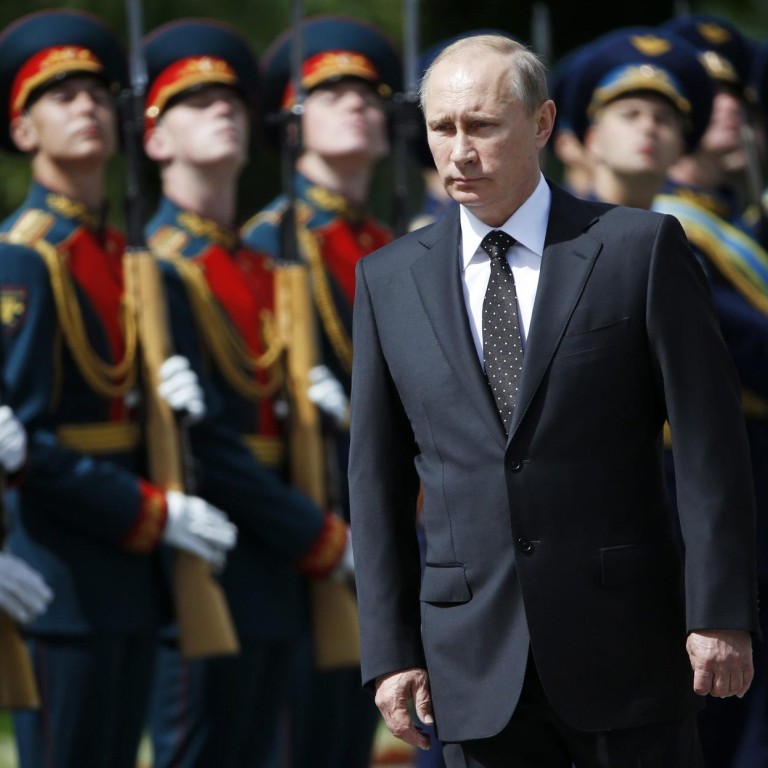
A glimpse into the opaque world of Vladimir Putin's Kremlin
Reports from Moscow paint a picture of a man whose actions in Ukraine are source of mystery
He is revered, even feared, to the point where no one will contradict him; broadly supported, but very narrowly advised by an ever-tighter group of confidantes.
This is the picture of Vladimir Putin and his leadership style painted by people with knowledge of the Kremlin, at a time when such things matter more than at any time since the collapse of communism.
Putin's Ukraine actions have made him once again arguably the world's most fascinating leader, but his thinking is becoming as opaque as Moscow was during the time of Leonid Brezhnev and the cold war.
One anecdote about Putin's Kremlin reveals a tantalising glimpse of what it is to be a presidential adviser. Putin receives briefings in red folders; he very rarely uses the internet. According to one source, requirements for his briefing notes have changed significantly in recent months.
He now demands notes on any topic to be no more than three pages long and produced in an eyesight-friendly type.
But the number of people speaking truth to power is small. The majority of those in the Russian government, exasperated by the sharp Western response to the six-month crisis, approve of Putin's actions in Ukraine. But those who disapprove have no forum in which to voice their doubts. Evgeny Minchenko, an analyst who studies Kremlin elites, says that the security services, after reshuffles and purges, are "more loyal to Putin than at any time since he took power".
That doesn't mean the Kremlin is united. Former employees say the level of infighting is remarkable because of the extraordinary array of people working under one roof.
"The Kremlin is full of people with completely opposing views. You can have people who believe in a fully state-controlled economy working on a project with people who are market-oriented liberals," said one former Kremlin employ.
Far from finding this a problem, Putin relishes it, according to the source. "He likes it when his subordinates fight each other; he feels it makes him stronger."
One of the few sources of information about how Putin's presidential administration works in recent months has been a blog by a group called Shaltai-Boltai, the Russian name for Humpty Dumpty.
The blog, which is now banned, has posted leaked Kremlin documents and emails, most recently claiming to have hacked the phone of Prime Minister Dmitry Medvedev.
Reading the emails and internal documents of the Kremlin had given the group an insight into the way Russia is run, said Shaltai-Botlai, who described Putin as a man "without human emotions", but a genuine patriot with a belief that his rule is the best thing for Russia.
"I think he has been in power too long. He has grown detached. He really is like a tsar. Below him people are fighting among themselves, but they are too scared to disagree with him. He does not have friends in the normal sense. There may be people he likes, but he is extremely paranoid."
Conversations with others familiar with the corridors of power suggest that recent key decisions have been taken in top secret and within a small circle, coming as a surprise to almost all mid-level officials.
"Two days before the decision to annex Crimea was made by Putin, almost nobody in the presidential administration knew anything about it," one said.
Likewise, few people have a real idea of just how far Russia's armed intervention in Ukraine will go. That is partly because Putin himself may not know. Putin, say Kremlin watchers, has not been acting according to a long-gestating atavistic plan to bring the Soviet Union back to life in recent months.
"Putin is a conservative," says a former Kremlin official who knows him personally. "Making dramatic decisions is not his style. He is good with speaking aggressively, and is not 'politically correct' in the Western sense. But with his actions, he has never been a fan of dramatic moves. This is why the last few months have been so surprising."
